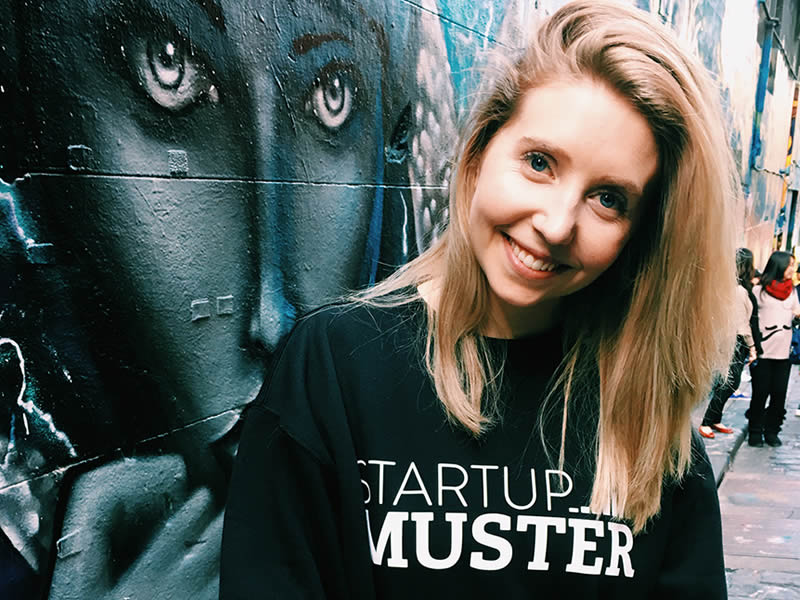Startup Muster has begun its third annual survey of Australia’s startup community.
Chief executive Monica Wullf says the idea of Startup Muster is to “measure the progress, challenges and opportunities in the Australian startup ecosystem, to demonstrate and accelerate their impact.”
Ms Wullf, a 28 year old former statistician with the Australian Bureau of Statistics, launched Startup Muster on a casual basis in 2013. She left her full time position as an analyst with big pharma company Astra Zeneca last year to work full time on the concept.

Co-founder was Murray Hurps, who acts as Startup Muster’s CTO, is also CEO of Sydney startup space Fishburners.
Startup Muster has yet to build a revenue stream, but has received funding and support from Google, UTS and the Department of Industry, Innovation and Science.
Ms Wullf says the immediate aim is to build the survey and database of the startup ecosystem in Australia, and that other activities will follow from that.
Last year more than 1333 startups completed the survey, with just under half of them (602) included in the report that it generated. The others were excluded, explains Ms Wullf, because they filled in incomplete data, they were not based in Australia, or because they did not meet the definition of a startup. The numbers were up from just 385 validated startups in 2014.
So how does Startup Muster define a startup, InnovationAus.com asked. “They are companies in the first stage of their growth with a large addressable market, who are using technology to attempt to capture that market quickly,” says Ms Wullf.
She agrees that not every new business is a startup by this definition – many are simply new businesses. It is the use of technology which sets startups apart.
The Startup Muster survey takes about 15 minutes to complete. It asks questions about staffing, use of technology, funding sources, the background of the founders, and aspirations. The results will be analysed and the results published in a short report, scheduled for October.
The survey can be found at www.startupmuster.com, and will close on 1 August.
InnovationAus.com asked whether she saw any changes in Australia’s startup community since the first Startup Muster. One, she said, was the increased number of female founders.
“The proportion has continued to increase, from 16 per cent of companies founded in 2011, to 19 per cent of those founded in 2012 or 2013, to 24 per cent of those founded in 2014.”
Some other statistics from the 2015 report:
- 47 per cent of startups were in NSW, and 44 per cent in Sydney. Victoria accounted for 18 per cent and Queensland 17 per cent.
- The proportion of startups that failed in their first year fell from 59 per cent in 2014 to 50 per cent in 2015.
- Most (62 per cent) of founders were born in Australia, with 9 per cent born in the UK and 4 percent in India. No other country was higher than 2 per cent.
- Half (exactly 50 per cent) of founders had no previous startup experience.
- Half (49 per cent) started in a co-working space, and one quarter (25 per cent) used incubators or accelerators. Nearly two-thirds (63 per cent) used mentors.
- Half the founders previously worked in technology (27 per cent) or finance (23 per cent).
- Most (60 per cent) were able to attract private capital investment, and 30 per cent received investment from family or friends.
- The reasons most given for pursuing a startup were “dissatisfaction with previous job” (33 percent), “a fun project that became a viable business” (27 per cent) and “inspiration from direct contact with startups” (23 per cent).
- January is the most popular month for launching a startup – 20 per cent are launched that month, no doubt as a result of a New Year’s resolution.
Ms Wullf says this year’s survey has expanded its focus substantially. “In previous years the survey engaged only with startup founders. This year the we are also engaging with people considering launching a startup, and organisations that support startups.”
She says this includes co-working spaces, incubators, accelerators, investors, universities, mentors and membership based organisations.
Do you know more? Contact James Riley via Email.

